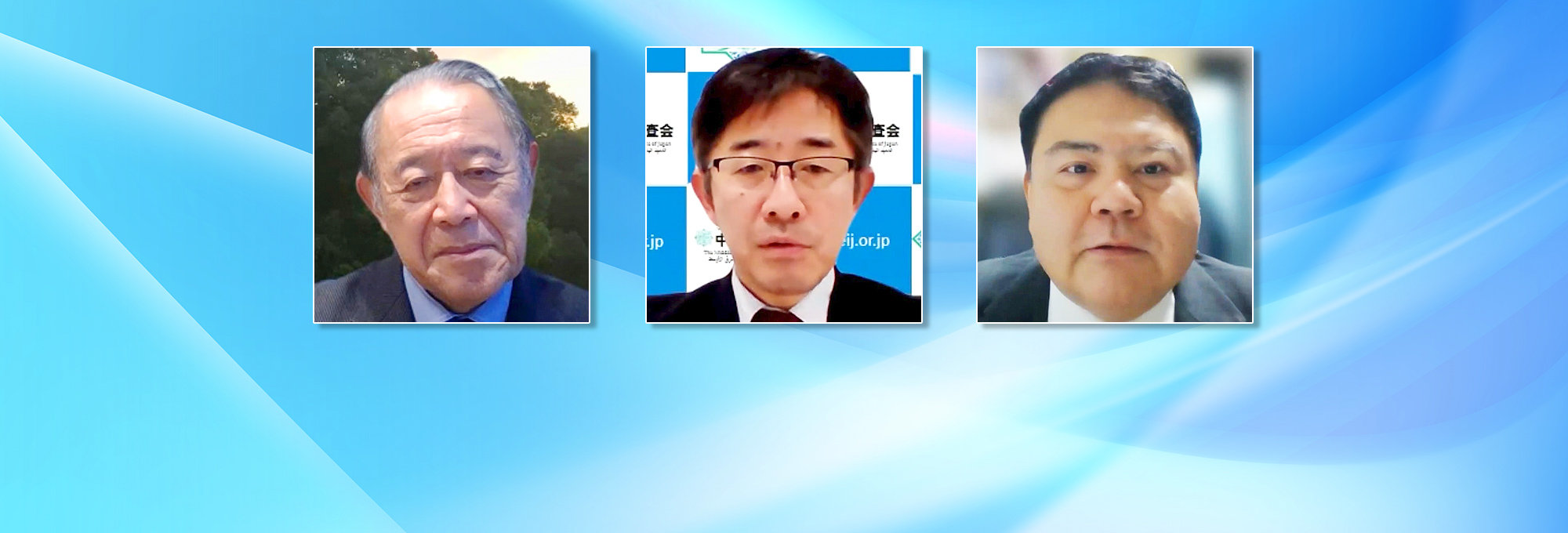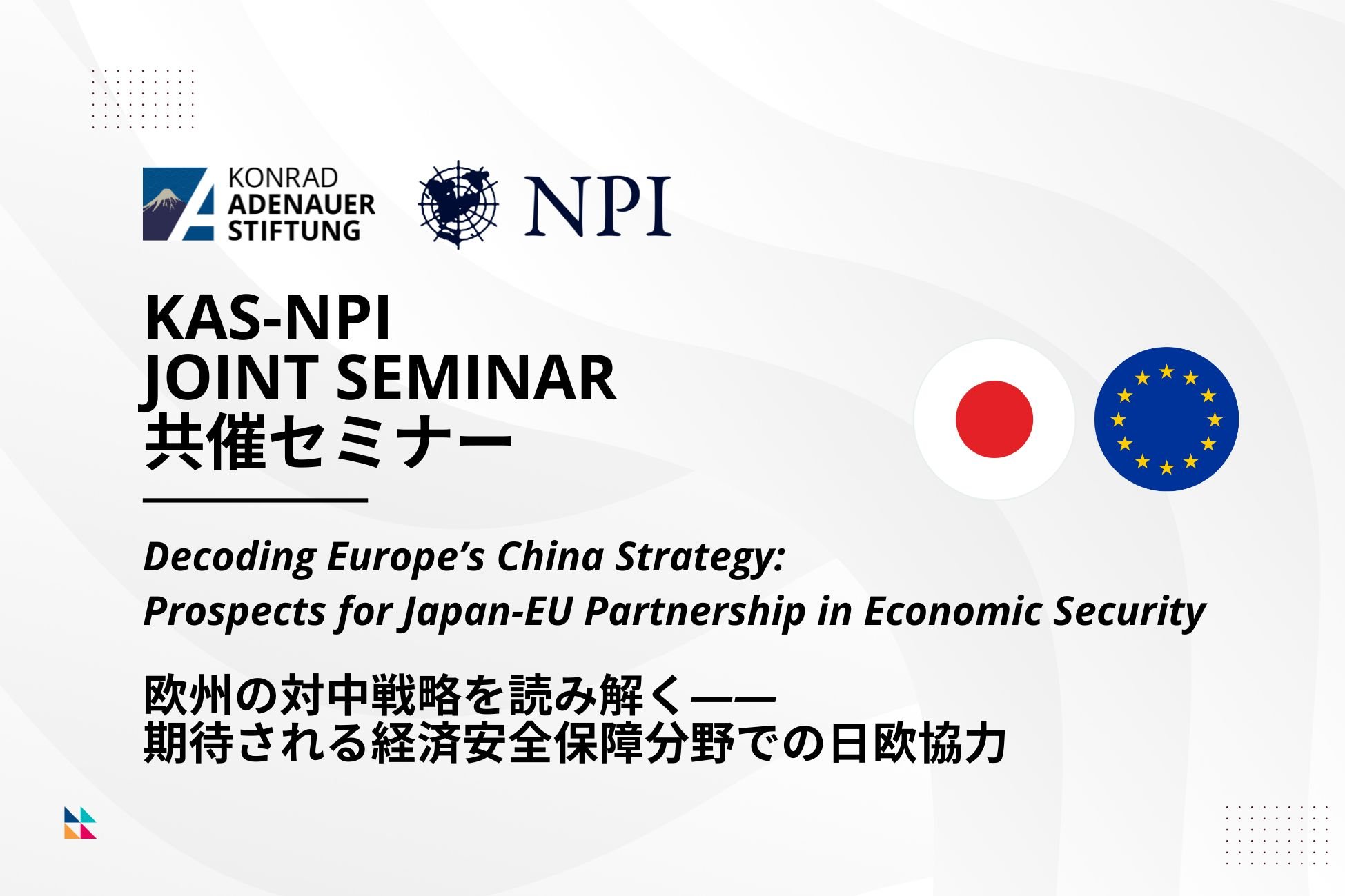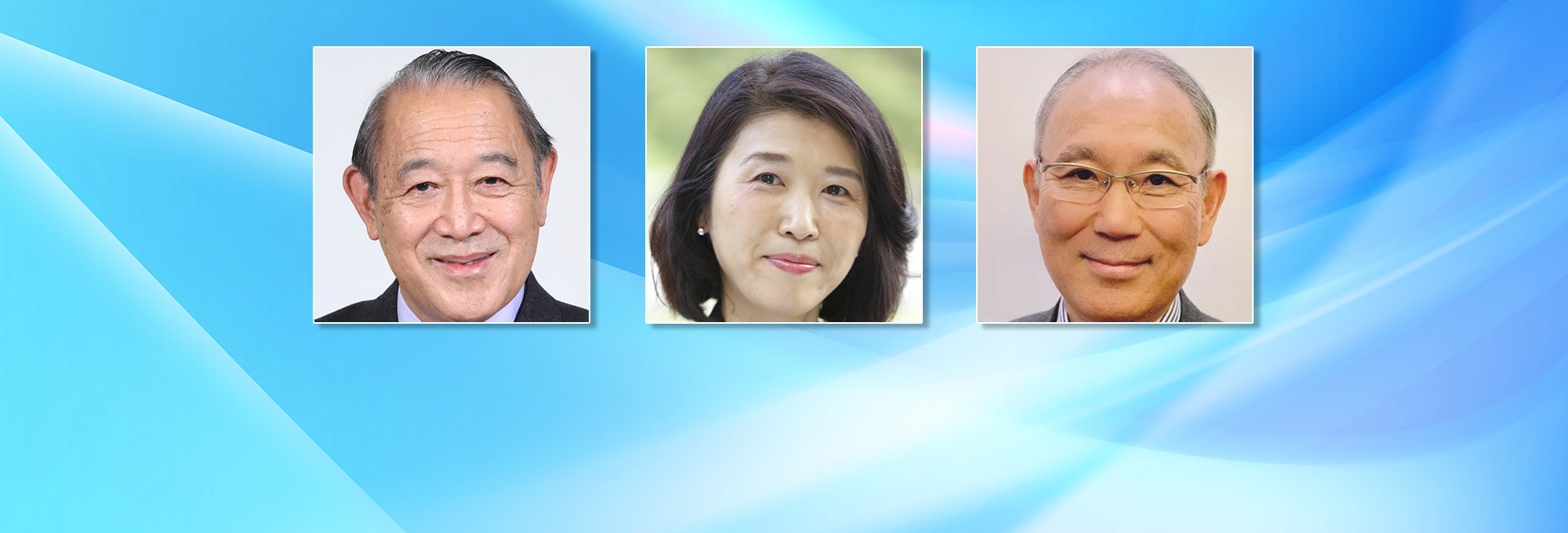2024/01/18
The November 17, 2023 session of the NPI series "Ask What You Want to Know" on "Gaza, Israel, and the United States"
The NPI "Ask What You Want to Know" series is a forum in which leading researchers discuss issues of current interest and field questions from attendees.
The armed conflict between Israel and Hamas in Gaza started by the latter's terrorist attack has resulted in many casualties. Although Japan, the West, and neighboring countries in the Middle East continue to make various diplomatic efforts, it cannot be said that these efforts have led to any concrete improvement in the situation. The humanitarian situation in Gaza is also alarming. We invited Takao Kenichiro, Executive Research Fellow at the Middle East Institute of Japan, and Maeshima Kazuhiro, Professor at Sophia University, to discuss the current analysis of the situation surrounding Gaza and the future outlook.
Moderator
Fujisaki Ichiro, Former Ambassador of Japan to the U.S.; Advisor, NPI
Panelists
Takao Kenichiro, Executive Research Fellow, Middle East Institute of Japan
Maeshima Kazuhiro, Professor, Dean, Faculty of Global Studies, Sophia University
Active discussion was held with the participation by attendees from the Ministry of Foreign Affairs, other government offices, corporations, and the mass media. The main questions from attendees were posed to the panelists on the day of the event as follows.
1.Why and with what calculations / chance of success did Hamas carry out the October 2023 attack?
2.Did Hezbollah and Iran know about the attack in advance? The neighboring Arab states blame Israel, but don't they really hope that Islamic extremism will weaken?
3.What do you think about the generational differences in the U.S. affinity for Israel?
4.In U.S. domestic opinion, is it believed that the U.S. will be involved militarily?
5.Regarding Israel's domestic politics, is it possible that Prime Minister Benjamin Netanyahu could lose support?
6.It appears difficult that President Joe Biden's proposal for support for Ukraine will be passed as is by U.S. House Republicans. Could this be because of Donald Trump's influence and emphasis on fiscal discipline?
7.What are the future prospects and outlook for Gaza?
The following is a summary of some of the panelists' remarks in response to these questions.
1.For Hamas, the main objective was not victory in the war, but to re-isolate Israel. Another objective was to counter the internal Palestinian problem, i.e., the West Bank.
2.It is unlikely that neighboring countries knew about this attack in advance. In addition, the neighboring countries support Palestine, but not Hamas, because criticism of their own regimes is something they fear.
3.In the past 20 years or so, changes in the American public have been observed. There has been a weakening in the sense of atonement toward the Jewish people among the American population; there has been an emergence of moderate factions in the Jewish population; skepticism of evangelicals who absolutely support Israel has increased; the Israel issue has become a burden of the past for the growing number of the non-white population; and, amid polarization of the American public, some members of Congress are advocating extreme views.
4.An attack on a U.S. military base is seen as an undesirable trend that would involve the U.S. militarily, and Iran's moves are attracting attention, but the U.S. believes that Iran is not yet serious about making such a move. The dispatch of the aircraft carrier(s) by the U.S. can be said to be only a precautionary measure.
5.That Prime Minister Netanyahu could form a national unity cabinet involving the opposition is expected, but support for a ground war from the international community is weak. Further, the future of Gaza after the destruction of Hamas is unclear.
6.Over the last decade, the Tea Party movement has shifted the sentiment of Republican supporters away from an anti-communist and globalization stance.
7.The outlook for the future is:
・If Hamas can get Israel to compromise, it has achieved its goal.
・Regarding post-war Gaza, there is a strong possibility that the West Bank autonomous government will be allowed to govern Gaza as well. Thus, ironically, the West Bank autonomous government may gain an advantage in this situation.
・The anti-American trend of countries with large Muslim populations, such as those in Asia, may continue to distance themselves from the U.S.
・Movement toward closer proximity between Israel and Arab states will be slow.
・No one wants more chaos or global confrontation, and Iran is not expected to take action.






